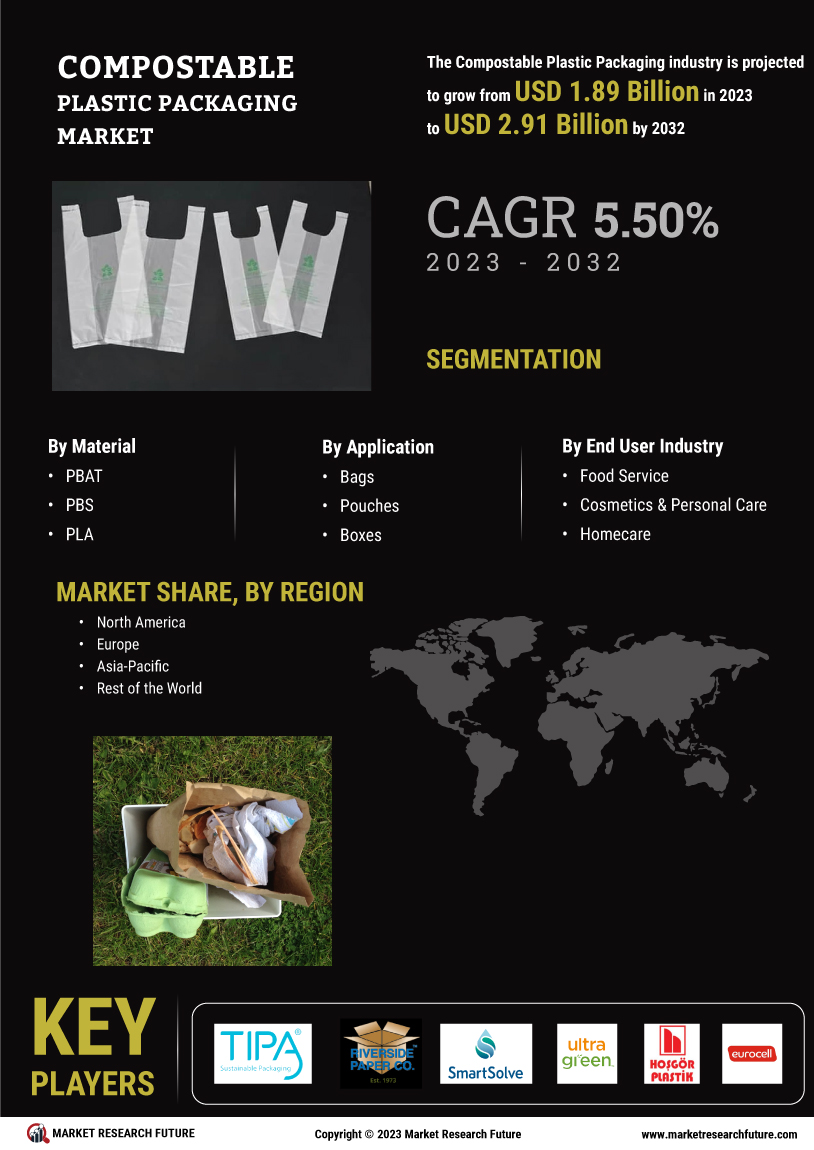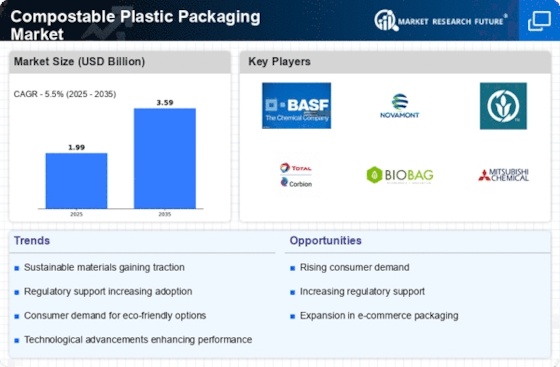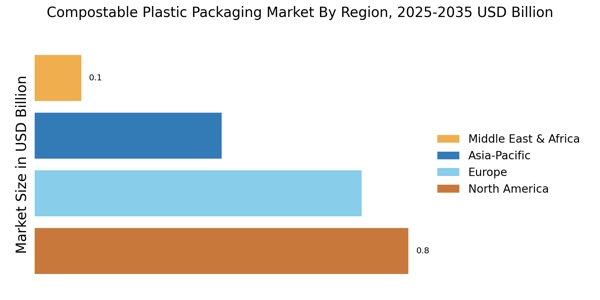Rising Environmental Awareness
The increasing awareness regarding environmental issues is a primary driver for the Compostable Plastic Packaging Market. Consumers are becoming more conscious of their ecological footprint, leading to a surge in demand for sustainable packaging solutions. This shift in consumer behavior is reflected in market data, which indicates that the compostable packaging segment is expected to grow at a compound annual growth rate of over 15% in the coming years. As individuals and organizations alike prioritize eco-friendly practices, the Compostable Plastic Packaging Market is likely to witness a significant uptick in adoption rates. Companies are responding to this trend by innovating and offering products that align with consumer values, thereby enhancing their market presence and competitiveness.
Government Regulations and Policies
Government regulations and policies aimed at reducing plastic waste are playing a crucial role in shaping the Compostable Plastic Packaging Market. Many countries have implemented stringent regulations to limit the use of conventional plastics, thereby encouraging the adoption of compostable alternatives. For instance, several regions have introduced bans on single-use plastics, which has led to a notable increase in the demand for compostable packaging solutions. Market data suggests that regions with robust regulatory frameworks are experiencing faster growth in the compostable packaging sector. This regulatory push not only fosters innovation but also creates a favorable environment for companies operating within the Compostable Plastic Packaging Market, as they align their offerings with compliance requirements.
Corporate Sustainability Initiatives
Corporate sustainability initiatives are increasingly influencing the dynamics of the Compostable Plastic Packaging Market. Many companies are setting ambitious sustainability goals, which often include the transition to compostable packaging solutions. This trend is driven by the recognition that sustainable practices can enhance brand reputation and customer loyalty. Market data indicates that businesses that prioritize sustainability are likely to experience higher growth rates compared to their counterparts. As corporations commit to reducing their environmental impact, the demand for compostable packaging is expected to rise. This alignment of corporate strategies with sustainability objectives is propelling the Compostable Plastic Packaging Market forward, as companies seek to innovate and differentiate themselves in a competitive landscape.
Consumer Preference for Eco-Friendly Products
The growing consumer preference for eco-friendly products is a significant driver of the Compostable Plastic Packaging Market. As sustainability becomes a key purchasing criterion, brands are increasingly adopting compostable packaging to meet consumer expectations. Market data reveals that a substantial percentage of consumers are willing to pay a premium for products packaged in environmentally friendly materials. This trend is prompting companies to rethink their packaging strategies and invest in compostable solutions. The shift in consumer preferences not only supports the growth of the Compostable Plastic Packaging Market but also encourages brands to enhance their sustainability narratives, thereby fostering brand loyalty and attracting environmentally conscious consumers.
Technological Innovations in Compostable Materials
Technological advancements in the development of compostable materials are significantly influencing the Compostable Plastic Packaging Market. Innovations in bioplastics and material science have led to the creation of more efficient and cost-effective compostable packaging solutions. These advancements are crucial as they enhance the performance characteristics of compostable materials, making them more appealing to manufacturers and consumers alike. Market data indicates that the introduction of new materials, such as polylactic acid (PLA) and polyhydroxyalkanoates (PHA), is expected to drive growth in the sector. As companies invest in research and development to improve the functionality and sustainability of their products, the Compostable Plastic Packaging Market is poised for substantial expansion.


















